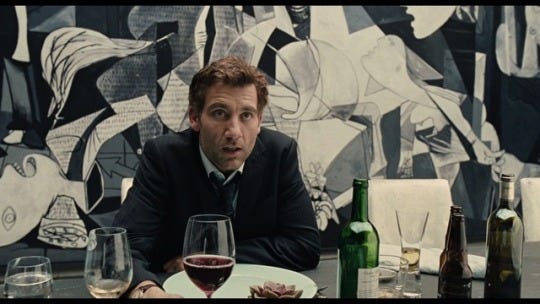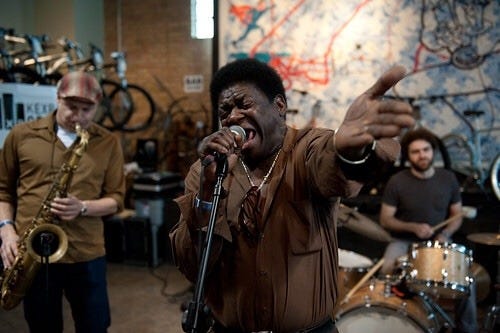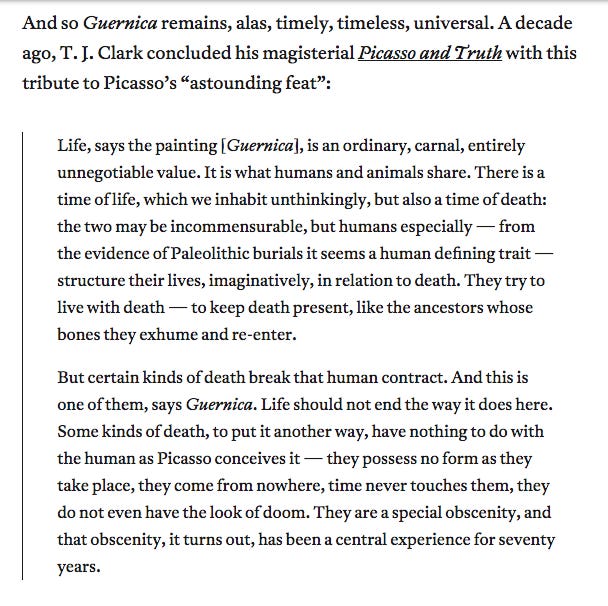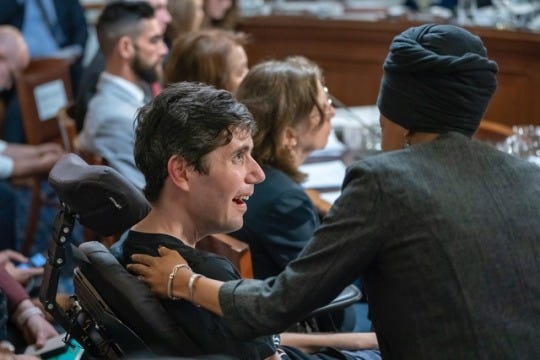Tabs Open #6: Slack Ropes and Ashes

Welcome to Tabs Open! This week: the invention of capitalism, athletes named Bob, UFO cover-ups, and more.
1. There’s this bad habit I have where I tend not to pay much attention to the musicians that people adore until it’s too late: they’ve passed and they won’t be making any more music. So when Charles Bradley died of stomach cancer in late 2017, I felt fortunate to have already been turned on to his music by my older brother, who promised me that the video he was sending me showed “the sweatiest man in soul.” He was that, and more: a man possessed of a voice that cut straight through my heart. It just feels different appreciating people while they’re still alive, you know?
The reason I’m bringing this up this week is that Bradley’s estate just released a posthumous single, one he recorded in 2016 shortly after receiving the diagnosis for the disease that would eventually kill him. It’s about as raw and powerful as you’d expect from a man whose Wikipedia page lists “The Screaming Eagle of Soul” as a nickname. Titled “Lonely As You Are,” it makes for a fitting final message from one of the most emotional voices in American music. (To treat yourself some more after you listen, please check out his live cover of Black Sabbath’s “Changes.” Look into those eyes while he sings and tell me you’re not ready to start spilling tears right along with him.)

2. If writing this newsletter has taught me anything it’s that it’s difficult to convey information profoundly and succinctly at the same time. I’m in awe of the writers who can do that; it’s a special bit of artistic wizardry that can only really be achieved through years of effort and intention. Imagine my joy, then, at discovering this two-year-old essay that manages to be both a concise history of the Spanish Civil War and a moving piece of art criticism. It’s ostensibly about Pablo Picasso’s Guernica, but ends up being so much more: freedom, fascism, death, hope.
That’s Guernica in the header image for the newsletter this week, taken from the outstanding film Children of Men--a must-watch made all the richer by the new light this essay brings to the painting. I won’t say more here. Instead, I’ll leave you with the piece’s devastating kicker:

3. It is easier, Frederic Jameson once said, to imagine the end of world than the end of capitalism. It’s perhaps due to this difficulty that people tend to see capitalism as both inevitable and fixed: it has always been here, and always will be. But history tells us that isn’t true at all. Like all human systems, capitalism had to be engineered; if it was made, it stands to reason that it can also be unmade.
I raise this point because I got a hot tip from a reader this week (okay, it was my mom) about a good historical overview of where capitalism came from, courtesy of Yasha Levine. Levine traces the very specific instances of pressure that were intentionally leveraged by moneyed aristocrats to make previously self-sufficient European peasants hostage to a new wage-earning system--stripping them of communally-held land, banning game hunting, taxing food produced for the home, and more. The means of producing that which was necessary for survival were taken from the public and put in the hands of private managers, aided by oppressive regimes with a vested interest in not letting the great unwashed masses ever get too comfortable or even live all that long. The consequences of these choices a few hundred years later are global in scope and calamitous in sum.
If you’re interested in a deeper dive on all this, I recommend Vivek Chibber’s excellent lecture series about the topic from The Call Radio. (If podcasts aren’t your thing, Chibber also wrote a 3-part pamphlet series on the same topic for Catalyst that you can get for $10, which is frankly a steal.)
4. Whenever you encounter someone whose bravery astounds you, I think that moment is worth sharing. I had one of those moments on Tuesday during the House Committee on Rules’ Medicare for All hearing. A man named Ady Barkan gave testimony about the need to implement a universal single-payer healthcare system in the United States now, not in 5 or 10 years. Barkan is just 35, and he’s dying of ALS. Beyond policy and numbers, he cuts to the heart of all this: dying people should get to spend their last days surrounded by their loved ones, not fighting and haggling with insurance companies or updating GoFundMe pages for each new round of treatment.

If the testimony itself becomes too much for you--and it might, especially given the way Barkan is forced to deliver it--you can read the transcript here. For a further breakdown, check out Libby Watson’s analysis at Splinter. I like the point she closes with:
It is time to start being meaner to politicians, Republicans and Democrats alike, who don’t support single-payer. Remind them what they do support when they say they want to preserve a system that includes $6,000 deductibles and people dying from rationing their insulin...This is not some wonky debate over taxes and premiums; it is a moral emergency.
5. When all is said and done I’m fairly certain we will look back at SB Nation’s Jon Bois as one of the absurdist artistic visionaries of our age. He’s responsible for two of my favorite media series of all time: 2017′s sprawling, genre-defying 17776 and the ongoing “Pretty Good,” the pinnacle of which was a video explainer about NFL labor relations and the heroically funny actions of Philadelphia Eagles QB Randall Cunningham in 1987.
This week, Jon treated us to the latest installment of his “Chart Party” series, in which he does a deep dive into a bizarre sports stat and ends up extracting lines of meaning that the rest of us might never have found. This edition is all about the precipitous decline of professional athletes named Bob. It has to be seen to be appreciated. Thank you, Jon.
6. Did you know that the U.S has almost certainly been trying to suppress credible reports of UFO activity from Navy pilots for several decades? You do now!
7. I’ll leave you this week with a page of poems from Molly Minturn. There are 3 here, quick reads all, each with staccato oomph. There are too many good lines to choose from, but here’s one to get you hooked:
In the allegory of Plato’s Cave,
what happened to the peoplewho held the puppets behind the fire?
I think they may still be standing thereamong slack ropes and ashes.
Thanks for following along this week! If you’re enjoying Tabs Open, feel free to tell your friends where to find the newsletter.
-Chuck



